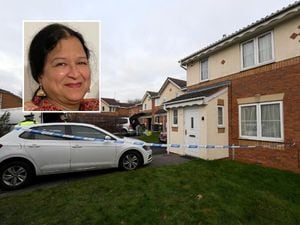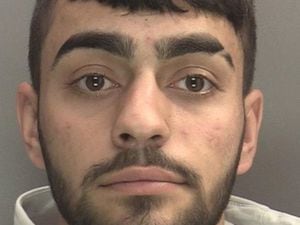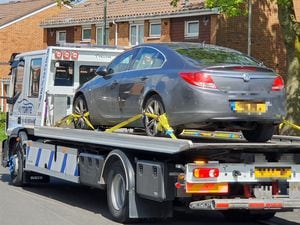Everyone's a winner as Lottery turns 20
It has created more 3,700 millionaires and raised billions for good causes.
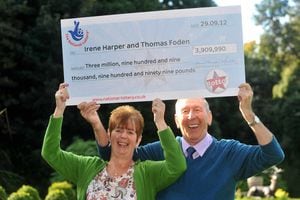
And tonight, when its draw machine and brightly coloured balls whir into life, the National Lottery will be 20 years old.
Since the first draw was on November 19, 1994, it has become a national institution. And on Saturday, 20 new millionaires will be created during a special draw.
32 billion pounds raised since the National Lottery began
70 per cent of UK adults play the lottery on a regular basis
6,000 village halls restored thanks to National Lottery funding
57,000 veterans also paid to go on commemorative visits
38 the most regularly drawn ball
13 the least popular ball
111 number of lottery millionaires in Birmingham, more than any postcode
4.5 average number of cars each lottery winner buys
3.4 average number of holidays taken by winners
50% of jackpot winners give up work
95% of winners share money with family[/breakout]
Tom Naylor, who grew up in Wednesbury, became the Black Country's biggest lottery winner when he scooped a colossal £15.5m windfall on the Lottery Extra game in 2001.
Mr Naylor who worked as a lorry driver in West Bromwich, won the jackpot in the week the National Lottery was celebrating its seventh anniversary. The 58-year-old told the Express & Star he continues to play the lottery several times per week – and still celebrates the occasional win.
He said: "I have the same set of numbers I play and since the big win I have had quite a few other wins. Obviously the amounts are much smaller but it still gives me that same feeling.
"I don't know if it is just luck. Some people play for years and never win a penny. People ask me why I carry on playing after winning so much money, but it's something I have always loved doing so why stop?"
Mr Naylor and his wife Rita celebrated their win by lavishing £375,000 on a plush barn conversion in Wheaton Aston and embarking on a spending spree involving lavish foreign holidays and luxury motor cars.
The win allowed the pair to live out their wildest dreams, which for Mr Naylor included replacing his clapped out old Ford Granada with a top of the range Jaguar. They moved to the Staffordshire countryside from a modest £50,000 three-bedroom semi in Birmingham Street, Darlaston.
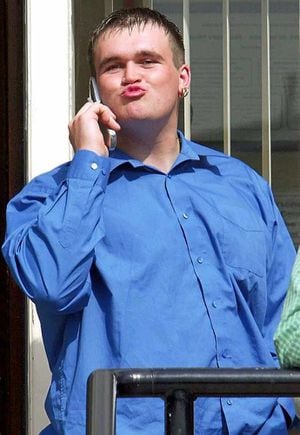
The original 'King of the Chavs' Michael Carroll was 19 when he won £9.7 million in 2002. Petty criminal Carroll, of Downham Market in Norfolk, became known as the Lotto lout when he collected his jackpot wearing an electronic tag. In 2010 he said he had squandered his fortune.
Iorworth Hoare, from near Newcastle-upon-Tyne, was dubbed the Lotto rapist after scooping £7.2 million in 2004 when he bought a ticket while on day release from prison. Details of his conviction came to light after the win. The High Court later ordered that he pay close to £100,000 to his victim.
Mark Gardiner, a glazier from Hastings, Sussex, won half of £22.6 million in 1995. Years later he spoke about how the money had ruined his life. He told the Daily Mail he was met with jealously, false allegations and legal claims from ex-girlfriends.
Callie Rogers, from Workington in Cumbria, became Britains youngest ever lottery winner at 16 when she won £1.9 million in 2003. Ten years later she said she had frittered the money away on drugs and alcohol. The mother of three was left with just £2,000 but added: Im finally happy.
Stuart Donnelly, who became Scotlands youngest jackpot winner when he picked up almost £2 million in November 1997 aged 17, was found dead at his home in Castle Douglas, Kirkcudbrightshire, in January 2010. Police said the 29-year-old recluses death was not suspicious.
Roger and Lara Griffiths, from Wetherby in West Yorkshire, netted £1.8 million in 2005. He had worked as an IT manager and she as a performing arts teacher but both quit their jobs. Mrs Griffiths later spoke of how the win wrecked their marriage while Mr Griffiths said he had been left with just £7 in the bank. She told how she had been forced to sell her designer handbags.
Not everybody has let the money affect them. Gareth and Catherine Bull, from Mansfield, scooped £42 million two years ago but say they have changed little in their lives. Mr Bull told the Telegraph: We were boring before and were boring now.
Rita, who used to work at Walsall leather firm Daines & Hathaway, said despite the win – and her penchant for shopping – she was just as likely to be found rooting around the shelves of M&S and Next.
"I'm not bothered about designers at all," she said. "If it looks nice, I'll have it."
Eighty-year-old Thomas Foden and his daughter Irene Harper, then 60, from Tipton, won a share of the UK's first Lotto quadruple rollover jackpot in October 2012. But instead of splashing out on mansions, they plumped for matching bungalows in Sedgley.
Former Tarmac construction worker Mr Foden said the win hadn't changed him: "I am still doing exactly the same thing.
"I mix with the same chaps. I don't boast about what I've got. It's nice to have the money. It's nice to know that I've got it if I need it. But as long as I have my meals and can go to the pub, I am happy."
The region has seen some big syndicate winners as well. In 2003, a 10-strong syndicate at a West Bromwich residential home scooped £1.9m. And six years later, the town struck lucky again. In 2009, 13 bus workers at Travel West Midlands' depot in Oak Lane, West Bromwich, scooped £105,909 in the Lotto draw after matching five numbers plus the bonus ball.
They'd only been in it to win it for 13 months, before syndicate leader Harpreet Singh suggested they play the Wednesday draw and the move paid off, with each member now £8,146.85 richer. And in 2005, six security guards in Stafford sat on their winning ticket for four days unaware they had won just over £10,000 each in the January 1 draw.
The six guards at Areva T & D always always bought Lucky Dip tickets but it was not until syndicate organiser Dave Jones checked the tickets days later that he found one ticket had matched five numbers and the bonus ball to land a £61,111 win.
Prime Minister David Cameron said: "Since its launch, the National Lottery has changed lives across the length and breadth of the UK."
He added: "It's made its mark on our landscape in the shape of the Angel of the North, the Sir Chris Hoy Velodrome and the Millennium Stadium.
"And, having raised over £32 billion for good-cause projects, it's making a difference in our communities too - preserving treasured heritage sites, supporting the arts, propelling our sports stars to even greater heights and making a real difference to hundreds of thousands of smaller grassroots projects."
There are four Lotto draw machines and eight sets of balls.
The most drawn ball in the competition's history is number 38, while 13 has made the fewest appearances.
The largest individual Lotto winner was Iris Jeffrey, from Belfast, who scooped a staggering £20.1 million in July 2004.
According to organisers, around 70% of the UK's adult population regularly buy a ticket or enter a sweepstake.
More than £750 million has been donated to help regenerate public parks, while charity cash has also been ploughed into supporting British-made films.
Unusual purchases by jackpot winners included a football club, a narrow boat, and "a pair of new hips for the wife", while one winner bought the property next door and turned it into a pub.
Andy Duncan, chief executive of National Lottery operator Camelot, said: "Having raised over £32 billion for these projects and paid out more than £53 billion in prize money, the National Lottery is, without doubt, truly life-changing."


